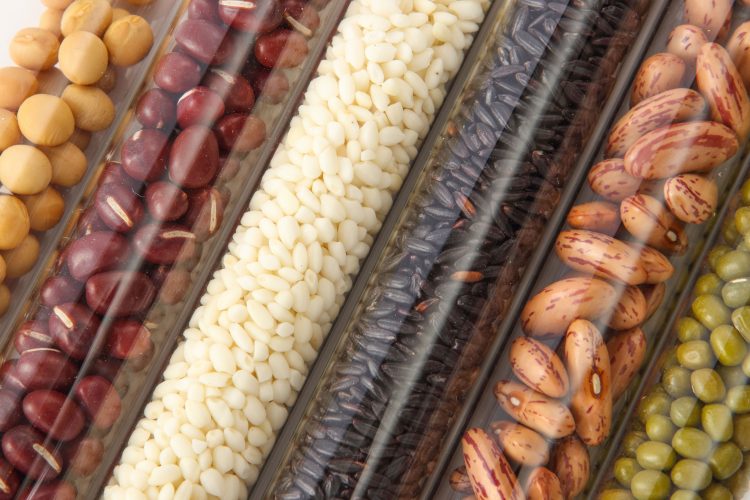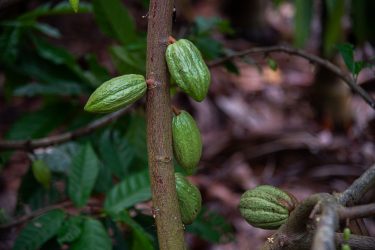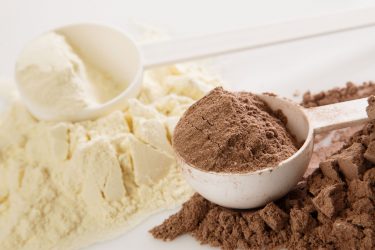Sourcing ‘clean’ plant-based ingredients
- Like
- Digg
- Del
- Tumblr
- VKontakte
- Buffer
- Love This
- Odnoklassniki
- Meneame
- Blogger
- Amazon
- Yahoo Mail
- Gmail
- AOL
- Newsvine
- HackerNews
- Evernote
- MySpace
- Mail.ru
- Viadeo
- Line
- Comments
- Yummly
- SMS
- Viber
- Telegram
- Subscribe
- Skype
- Facebook Messenger
- Kakao
- LiveJournal
- Yammer
- Edgar
- Fintel
- Mix
- Instapaper
- Copy Link
Posted: 6 January 2021 | Oliver Amdrup | No comments yet
As consumers demand more from their plant-based products, Oliver Amdrup outlines the difficulties companies face in sourcing pure and natural plant-based ingredients.


Driven by a desire to feel more healthy and for simple, clean products that demand less of our natural resources, consumers are increasingly shifting their diet preferences towards plant-based. Recent surveys conducted by Userneeds and Puori show that up to 43 percent of consumers have changed their eating habits to be more plant-based over the last 12 months.
They also increasingly expect a greater selection of products without animal substances in other categories such as skincare, make-up and food/dietary supplements. Generally, they are looking for products that are natural and organic, without artificial fillers or additives.1
As a supplement brand devoted to natural and certified pure products, Puori also aspires to fulfill those marked rising demands. However, we have experienced some pitfalls when it comes to sourcing pure, natural plant-based ingredients over the years. Puori invests heavily in the integrity of its ingredients, sold separately as well as in final products. Extensive testing allows us to understand some of the challenges that can be encountered when formulating new products and enables us to help with ongoing sourcing for in-market products.
Driven by a desire to feel more healthy and for simple, clean products that demand less of our natural resources, consumers are increasingly shifting their diet preferences towards plant-based. Recent surveys conducted by Userneeds and Puori show that up to 43 percent of consumers have changed their eating habits to be more plant-based over the last 12 months.
They also increasingly expect a greater selection of products without animal substances in other categories such as skincare, make-up and food/dietary supplements. Generally, they are looking for products that are natural and organic, without artificial fillers or additives.1
As a supplement brand devoted to natural and certified pure products, Puori also aspires to fulfill those marked rising demands. However, we have experienced some pitfalls when it comes to sourcing pure, natural plant-based ingredients over the years. Puori invests heavily in the integrity of its ingredients, sold separately as well as in final products. Extensive testing allows us to understand some of the challenges that can be encountered when formulating new products and enables us to help with ongoing sourcing for in-market products.
We use Good Manufacturing Practice (GMP)- and Hazard Analysis and Critical Control Point (HACCP)-certified producers and base all ingredient sourcing on data.
Puori was created in 2009 by its two founders, Oliver Amdrup-Chamby and Julius Heslet, and the testing protocol has been anchored in transparency through third-party testing from the very beginning. Initially, Puori used IFOS testing of its fish oil supplement, which has subsequently expanded into full transparency testing across the entire product portfolio. The next step on the transparency journey was the addition of QR codes on all products to enable consumers to verify the purity and efficiency of their specific product batch in an even simpler manner and hopefully inspire other brands to follow suit.
Being so transparent with consumers means that you as a brand owner must work intensively with your entire supply chain to ensure that every single product batch does not reveal anything you did not expect. It is inherent in our product philosophy that we always use pure, natural and superior ingredients and, as such, we must regularly source ingredients globally.


Cocoa plants tend to grow best in tropical climates on moist, nutrient-dense, shaded soil and that often happens to be of volcanic origin
We use Good Manufacturing Practice (GMP)- and Hazard Analysis and Critical Control Point (HACCP)‑certified producers and base all ingredient sourcing on data. After all, you can’t fool data. Analytical lab checks are imbedded at every step and long‑standing relations are built backwards in the supply chain.
This necessitates close cooperation with manufacturers and ingredient suppliers as well as mutual risk assessments, setting goals and demanding high standards all the way back through the ingredient chain. If you skip this crucial step, it becomes very costly when you must destroy a whole production batch that does not pass the final testing. Equally costly, is when you must discontinue a product because you can no longer source an ingredient of the right quality, which in our context often translates into obtaining the specific ingredient with a low risk profile of contaminants.
Discovering heavy metals in food
In 2018 we were forced to discontinue a product containing organic certified sprouted brown rice protein, as we were unable to source that ingredient without compromising our rigid standards for heavy metal contamination. Needless to say, discontinuing a product that was so valued by our customers was not a desired outcome for all the effort invested in formulating and marketing the product two years earlier.
That same year, Puori’s whey-based protein powder ‘PW1 Pasture Raised Whey Protein Powder with Bourbon Vanilla’ tested as one of the cleanest in a study of 133 protein powders in the US carried out by Clean Label Project. The company tested all the protein powders for the presence of more than 130 contaminants, including heavy metals, pesticides, bisphenols, toxins and antibiotics.
However, our whey-based protein powder with cocoa, ‘PW1 Pasture Raised Whey Protein Powder with Dark Chocolate’, did not turn out to be as pure as the vanilla version, despite being formulated with 90 percent of the same three ingredients. Why was there a difference? The answer lies in the purity of one single ingredient.


A slight change in one ingredient can make all the difference, as evidenced by The Clean Label Project’s study in 2018
Cocoa plants tend to grow optimally in tropical climates on moist, nutrient-dense, shaded soil and that often happens to be of volcanic origin. Consequently, the cocoa beans have the opportunity to accumulate the minerals found in the volcanic soil, which unfortunately also leads to accumulation of heavy metals in the cocoa beans. They are prone to cadmium contamination as well as lead, which are both unwanted heavy metal contaminants for our purposes. So, the certified organic cocoa we added to our protein powder formula exposed us to a risk of heavy metal contamination. Given the natural variance in the cocoa bean’s absorption of the natural occurring contaminants, adding 10 percent of cocoa to the formula exposed us to a risk of testing out of specification.
Puori is using the rigid standards set forth by California Proposition 65 for heavy metals, mainly because our US office is based in California but also to ensure a proper low-risk contamination profile for our customers. A simple solution has been to re‑formulate the product with half the cocoa content, but that does increase cost.
How ‘clean’ is your whey?
The 2018 protein powder study by Clean Label Project also revealed that whey-based products in general tested cleaner than plant-based protein powder products. As the demand for plant-based protein powders is growing, we want to include plant-based protein products in our portfolio.
Plant species used for protein powders are typically pea, rice, soy, hemp and grape seeds – the first two being the most popular ingredients for such products. As with other plants, these accumulate nutrients from the soil. As the protein content in these plants does not naturally reach the desired level for a protein powder, the additional processing, which concentrates the protein, sometimes also concentrates the heavy metals and other contaminants. This leads to a higher contaminant concentration in the protein concentrate, than would ordinarily be found in the natural grown plants. Therefore, it is crucial to segregate the raw plants based on contaminant levels if you want a low heavy metals profile of the concentrate. Identifying such ingredients is possible but requires a lot of effort – and not everybody focuses on that angle.
Many consumers within the plant-based space want organically grown products, which makes sense as they are usually grown without artificial fertilisers, pesticides and other unnatural substances, and without the use of genetically modified organisms (GMOs). The precise criteria varies, however, depending on the certifying body. However, consumers may not be aware that the yield is typically lower in organic farming, due to pressure on the Earth’s natural resources often being higher when cultivating organically.
Cocoa beans have the opportunity to accumulate the minerals found in the volcanic soil, which unfortunately also leads to accumulation of heavy metals in the cocoa beans.
We always use non-GMO ingredients and test for pesticides, etc., however, in our experience, we are just as likely to find pesticides in an organic certified product as in a conventional product where we have just set forth a set of requirements to ensure the integrity of the ingredients. It could be that organic growers are subject to cross‑contamination from ‘conventional’ fields, but in any case, a complete absence of pesticides can never be fully guaranteed even in organic plants.
There are a lot of considerations to make when entering the plant-based formulation ‘room’. Puori is not a dedicated vegan brand, so we just review the options within the space with the same integrity towards naturalness, purity and superiority as with our other products. Based on our experience, there are some pitfalls that can be avoided if you select your ingredients carefully and work closely with ingredient suppliers.
Reference
- Source Userneed A/S: N=2,000 July 2020 & Puori / Enalyzer: N=3,030
About the author
Oliver Amdrup is the Founder and CEO of Puori, a Danish Food Supplement brand focused on producing the cleanest, efficacious products on the market based on third-party testing data. Puori was founded in 2009 and is an international brand, with the US, Denmark and Sweden as its largest markets.
Issue
Related topics
Clean Label, Ingredients, Natural, Plant based, Processing, The consumer









